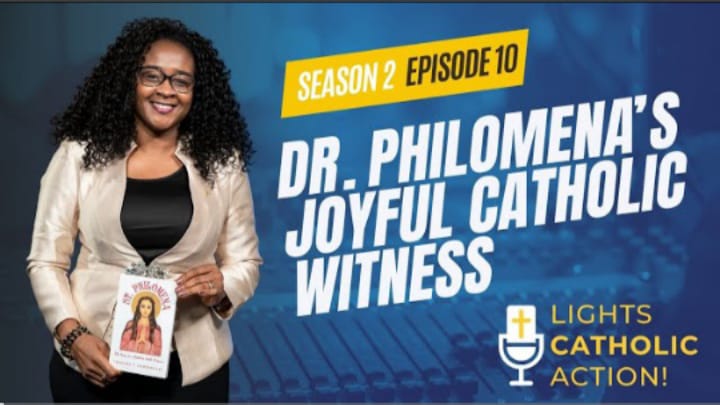
DR. PHILOMENA IKOWE AND HER JOYFUL CATHOLIC WITNESS
LIGHTS, CATHOLIC, ACTION! DR. PHILOMENA IKOWE AND HER JOYFUL CATHOLIC WITNESS Greetings and blessings, my dear beloved family and friends! I’m thrilled to share this podcast...

LIGHTS, CATHOLIC, ACTION! DR. PHILOMENA IKOWE AND HER JOYFUL CATHOLIC WITNESS Greetings and blessings, my dear beloved family and friends! I’m thrilled to share this podcast...

FRIDAY OF THE TWENTY-NINTH WEEK IN ORDINARY TIME SAINTS OF THE DAY ~ FEAST DAY: OCTOBER 24, 2025 MEMORIAL OF SAINT ANTHONY MARY CLARET, BISHOP AND...
Holy Mass and Holy Rosary | EWTN | October 24, 2025 Watch “Holy Mass from the National Shrine of the Divine Mercy” | October 24, 2025...

THURSDAY OF THE TWENTY-NINTH WEEK IN ORDINARY TIME SAINTS OF THE DAY ~ FEAST DAY: OCTOBER 23, 2025 FEAST OF THE HOLY REDEEMER AND THE MEMORIAL...
Holy Mass and Holy Rosary | EWTN | October 23, 2025 Watch “Holy Mass from the National Shrine of the Divine Mercy” | October 23, 2025...

WEDNESDAY OF THE TWENTY-NINTH WEEK IN ORDINARY TIME SAINTS OF THE DAY ~ FEAST DAY: OCTOBER 22, 2025 MEMORIAL OF SAINT JOHN PAUL II, POPE; SAINT...
Holy Mass and Holy Rosary | EWTN | October 22, 2025 Watch “Holy Mass from the National Shrine of the Divine Mercy” | October 22, 2025...

TUESDAY OF THE TWENTY-NINTH WEEK IN ORDINARY TIME SAINTS OF THE DAY ~ FEAST DAY: OCTOBER 21, 2025 MEMORIAL OF SAINT CELINE, MOTHER OF SAINT REMIGIUS;...
Holy Mass and Holy Rosary | EWTN | October 21, 2025 Watch “Holy Mass from the National Shrine of the Divine Mercy” | October 21, 2025...
Holy Mass and Holy Rosary | EWTN | October 20, 2025 Watch “Holy Mass from the National Shrine of the Divine Mercy” | October 20, 2025...